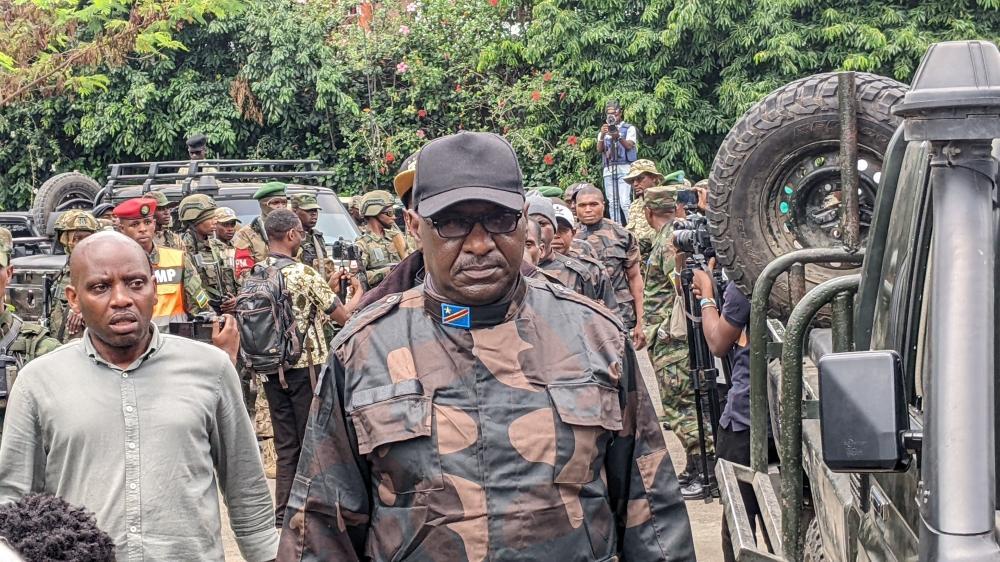Africa-Press – Rwanda. More than three decades after the 1994 Genocide against the Tutsi, in which over a million innocent lives were brutally murdered in 100 days, its persistent ideological embers continue to threaten regional peace efforts, experts have said.
The genocidal ideology that once overran Rwanda has not only been overlooked but also supported particularly in the DR Congo through armed groups like the FDLR.
Formed by remnants of the perpetrators of the 1994 Genocide against the Tutsi, the FDLR has since been integrated into the Congolese National Army (FARDC), among other militia outfits in the ongoing fight against the AFC/M23 movement.
Florida Kabasinga, attorney and executive director at Certa Foundation – a leading litigation advisory firm based in Rwanda – pointed out that genocide ideology would not be as dangerous if it wasn’t prolific and amplified by politicians for political expedience.
“In my experience, ideology lays the ground for genocide. Without ideology, we can never have genocide that is, in its nature, state-sanctioned. That means it’s given oxygen through media, statements by politicians, and on social media,” she told The New Times in an exclusive interview.
Kabasinga explained that cases have emerged where politicians are “othering” and demonizing part of their population, blaming everything going wrong in their countries on that “other”.
“In the DRC, the scapegoat is the “banyarwanda”. You may mistake this for all Kinyarwanda-speaking populations but in reality, “banyarwanda” is code for Tutsi,” she added, “Using the word “banyarwanda” also serves another important purpose: it says to whoever is listening that they aren’t Congolese but foreigners from a neighbouring country called Rwanda.”
“Should these notions continue to spread, it will create discrimination, and dehumanization, among others that are all recipes for disaster in the Great Lakes region. Disaster may not strike this year, next year, or even in 5 years, but I guarantee you it will come to pass if it goes unchecked.”
Despite several concerns raised by Rwanda regarding the Congolese government’s support to the FDLR, Alphonse Muleefu, a senior lecturer at the University of Rwanda’s School of Law pointed out that the outfit continues to maintain military hierarchies, mutating into a key player in eastern DR Congo’s security situation.
He said that its presence is not “accidental,” but rather a product of calculated political and material support, from within the Congolese authorities.
Muleefu referenced a 2023 United Nations (UN) report that cited evidence of collaboration between FARDC and the FDLR, including joint operations.
“This raises serious concerns about the DR Congo government’s commitment to peace and reconciliation in the region. By providing logistical and operational support to the FDLR, DR Congo not only undermines regional peace efforts but also gives sanctuary to genocide fugitives and ideologues.”
According to Gatete Nyiringabo Ruhumuliza, a political analyst based in Kigali, the persistence of the FDLR’s genocidal ideology has in large part fueled the current security crisis in eastern DR Congo.
Ruhumuliza maintained that the failure to prosecute key FDLR leaders for genocide-related crimes has emboldened the group.
He explained that while some have been sanctioned or tried, many continue to operate with impunity.
“Regional and international stakeholders face a critical test,” Ruhumuliza added, “Addressing the security crisis in eastern DR Congo cannot be divorced from confronting its ideological roots. Neutralizing the FDLR must go beyond a military approach, it also requires a coordinated strategy that includes judicial accountability, ideological deradicalization, and the enforcement of existing sanctions regimes.”
Ideology must not be taken lightly
At a time when Rwanda is commemorating the 1994 Genocide against the Tutsi, Ruhumuliza reiterated that the unresolved presence of the FDLR remains a painful reminder that genocide ideology when left unchecked, continues to threaten regional peace and stability.
He shared similar sentiments with Kabasinga who cited that different countries in the region must be alert to the nuances of ideology and ensure that their own countries do not fall prey to ethnic or tribal politics.
“For weak governments, dividing populations along ethnic or tribal lines keeps them in power. But it’s dangerous. In Rwanda, we have ingredients with which to build a nation. We have the same language, same culture, among others. But our history does not allow us to take ideology for granted, that’s why we criminalize genocide ideology.”
She added, “It would be shameful if other countries, particularly in our region, don’t learn from our bitter history.”
For More News And Analysis About Rwanda Follow Africa-Press






